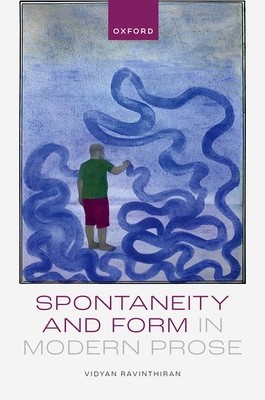
- We will send in 10–14 business days.
- Author: Vidyan Ravinthiran
- Publisher: Oxford University Press, USA
- ISBN-10: 0198852150
- ISBN-13: 9780198852155
- Format: 16.5 x 22.9 x 3.3 cm, kieti viršeliai
- Language: English
- SAVE -10% with code: EXTRA
Reviews
Description
This study analyzes post-Romantic prose whose authors--in terms of race, gender, class, nationality, and more--occupy a range of subject-positions. Unlike poetry, modern literary prose has no rhetorical repertoire or structure (beyond those of grammar) that one could tabulate. As a result, it becomes a zone of experimentation and spontaneous creativity, as well as a means to investigate the concept of spontaneity, understood as post-secular.
Heeding separate histories and peculiar particularities, this volume reveals writers discovering their ideas as they go, in prose whose sound, rhythm, syntax, and imagery escapes the preordained. There are chapters on William Hazlitt, Ralph Waldo Emerson and Walt Whitman (and Hindu philosophy), Gerard Manley Hopkins, Herman Melville, D.H. Lawrence and Saul Bellow, Virginia Woolf and Marion Milner, Gwendolyn Brooks, Adil Jussawalla, and Chimamanda Ngozi Adichie. These writers are intelligently vexed by two transitions: first, the movement from impulse into form; and second, the overlap between literary forms and social forms. They explore the yearning for renovated societies which, expressive of our deepest selves, would also enable those selves--in times of panicked fragmentation, moral relativism, and communication imperiled--to interact as citizens.EXTRA 10 % discount with code: EXTRA
The promotion ends in 21d.08:35:22
The discount code is valid when purchasing from 10 €. Discounts do not stack.
- Author: Vidyan Ravinthiran
- Publisher: Oxford University Press, USA
- ISBN-10: 0198852150
- ISBN-13: 9780198852155
- Format: 16.5 x 22.9 x 3.3 cm, kieti viršeliai
- Language: English English
This study analyzes post-Romantic prose whose authors--in terms of race, gender, class, nationality, and more--occupy a range of subject-positions. Unlike poetry, modern literary prose has no rhetorical repertoire or structure (beyond those of grammar) that one could tabulate. As a result, it becomes a zone of experimentation and spontaneous creativity, as well as a means to investigate the concept of spontaneity, understood as post-secular.
Heeding separate histories and peculiar particularities, this volume reveals writers discovering their ideas as they go, in prose whose sound, rhythm, syntax, and imagery escapes the preordained. There are chapters on William Hazlitt, Ralph Waldo Emerson and Walt Whitman (and Hindu philosophy), Gerard Manley Hopkins, Herman Melville, D.H. Lawrence and Saul Bellow, Virginia Woolf and Marion Milner, Gwendolyn Brooks, Adil Jussawalla, and Chimamanda Ngozi Adichie. These writers are intelligently vexed by two transitions: first, the movement from impulse into form; and second, the overlap between literary forms and social forms. They explore the yearning for renovated societies which, expressive of our deepest selves, would also enable those selves--in times of panicked fragmentation, moral relativism, and communication imperiled--to interact as citizens.

Reviews